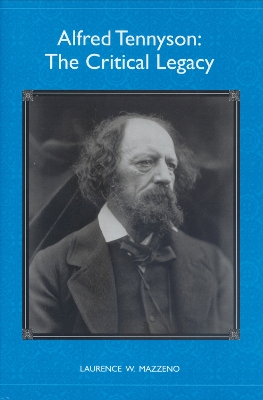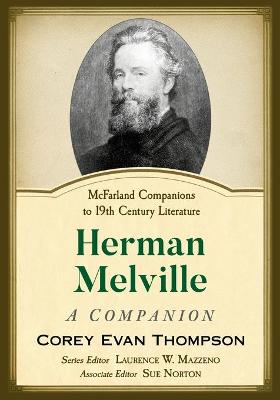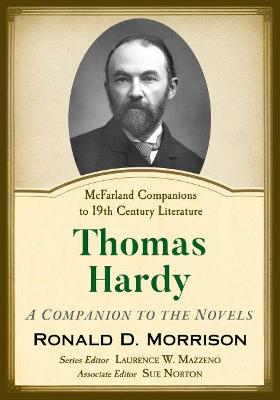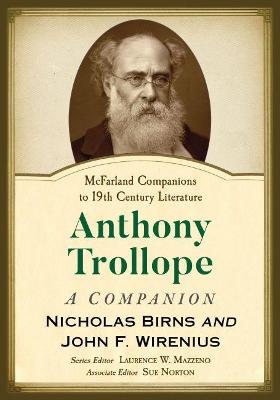McFarland Companions to 19th Century Literature
4 total works
Alfred Tennyson: The Critical Legacy explores the critics' reaction to the work of the nineteenth-century English poet most closely associated with the Victorian era. Perhaps more than any other Victorian poet, Tennyson's reputation has waxed and waned in the century since his death. He has been alternatively sanctified and vilified for his choice of subject matter, social outlook, morality, or techniques of versification. His reputation has weathered even the most vitriolic attempts to discredit both the man and his writings; and as criticism of the late twentieth century demonstrates, Tennyson's claim to pre-eminence among the Victorians is now unchallenged. Laurence Mazzeno begins this narrative analysis of Tennyson criticism with an look at how Tennyson was regarded by his contemporaries, before launching a detailed examination of twentieth-century criticism. A chapter is devoted to the period immediately following Tennyson's death, when a generation of post-Victorians reacted violently against what they considered his sappy sentimentalism, cloying moralism, and insensitive jingoism. Subsequent chapters describe how critics resurrected Tennyson, highlighting both his technical mastery and his social criticism. Special attention is given to major biographers and critics such as Harold Nicolson, the poet's grandson Sir Charles Tennyson, Jerome Buckley, R. B. Martin, Michael Thorn, and Peter Levi. A final chapter focuses on the ways Tennyson and his work have been addressed by poststructuralist critics. Throughout the study, Mazzeno demonstrates that the critics' reaction toTennyson reveals as much about themselves and the critical prejudices of their own times as it does about the Victorian Laureate and his poetry.
Laurence W. Mazzeno is president emeritus of Alvernia College, Reading, Pennsylvania.
Laurence W. Mazzeno is president emeritus of Alvernia College, Reading, Pennsylvania.
This reference work covers both Herman Melville's life and writings. It includes a biography and detailed information on his works, on the important themes contained therein, and on the significant people and places in his life. The appendices include suggestions for further reading of both literary and cultural criticism, an essay on Melville's lasting cultural influence, and information on both the fictional ships in his works and the real-life ones on which he sailed.
Thomas Hardy enjoyed a long and distinguished career as a novelist before devoting his talents to writing poetry for the remainder of his life. This book focuses on Hardy's remarkable achievements as a novelist. Although Victorian readers considered some of his works controversial, his novels remained highly regarded. His novels still appear in the syllabi of courses in Victorian literature and the British novel, as well as courses in feminist/gender studies, environmental studies, and other topics.
For scholars, students, and the general reader, this companion helps to makes Hardy's novels accessible by providing a detailed biography of Hardy, plot summaries of each novel, and analyses of the critical contexts surrounding them. Entries focus on the people, cultural forces, literary forms, and movements that influenced Hardy's novels. The companion also suggests approaches for original interpretations and suggestions for further study.
For scholars, students, and the general reader, this companion helps to makes Hardy's novels accessible by providing a detailed biography of Hardy, plot summaries of each novel, and analyses of the critical contexts surrounding them. Entries focus on the people, cultural forces, literary forms, and movements that influenced Hardy's novels. The companion also suggests approaches for original interpretations and suggestions for further study.
Anthony Trollope
by Nicholas Birns, John F Wirenius, and Laurence W Mazzeno
Published 1 October 2021
Anthony Trollope's novels and stories entertain while vividly bringing the Victorian era to life. His deep empathy for the underdog led him to subvert conventions, exploring the lives of women, as well as men, and choosing as heroes and heroines outsiders who would be viewed with suspicion by his readers. Trollope's profound insight to human nature made him the first novelist in English to develop three dimensional characters and to create the novel sequence. This literary companion introduces readers to his life and work. A-to-Z entries explore Trollope's short story collections, and nonfiction contributions, as well as important themes in the works. This companion also includes fresh voices of contributors that bring in their contemporary insights to bear on Trollope's achievements, facilitating the understanding of Trollope's perspectives in relation to feminism, queer studies, and transnationalism.



